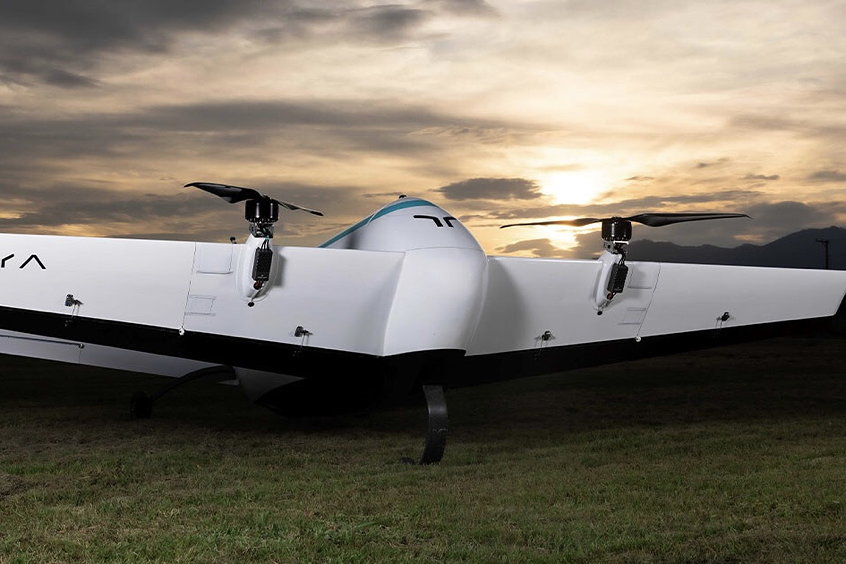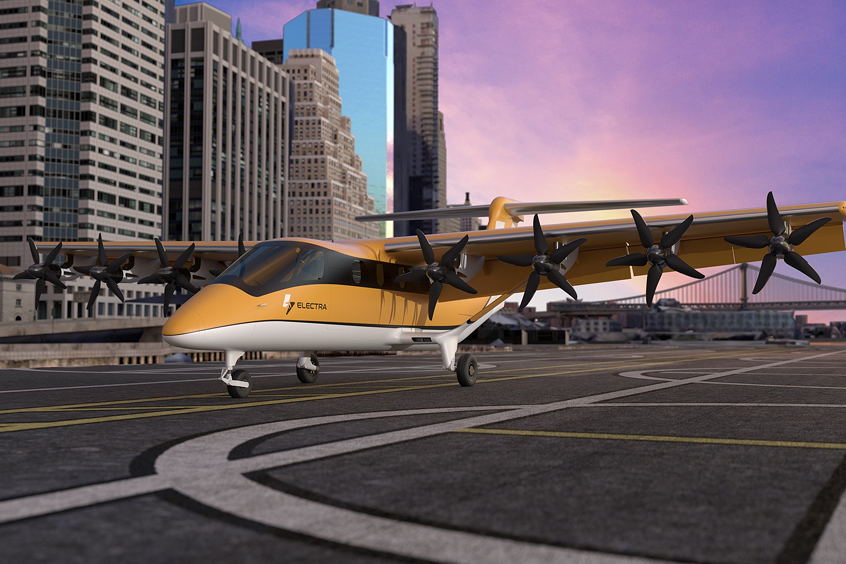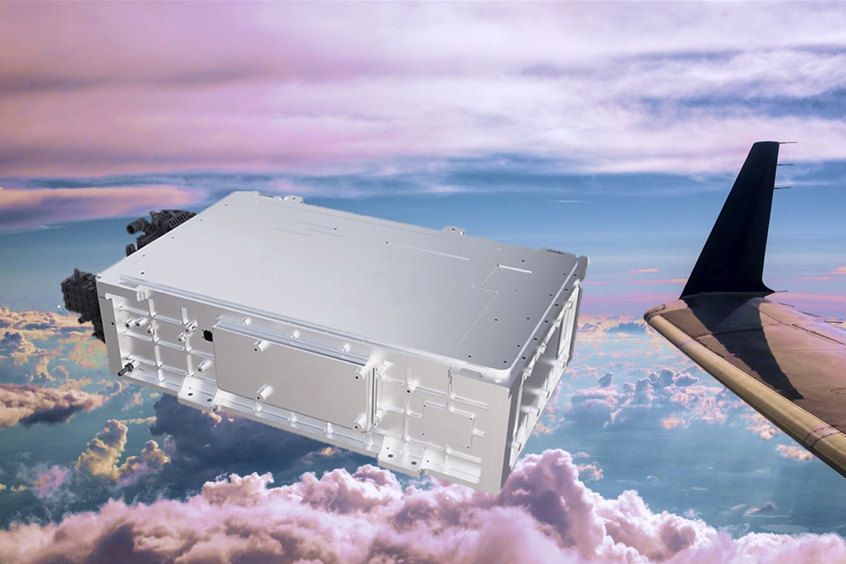MightyFly, an autonomous air cargo carrier, announced that it has performed successful autonomous flights of its MF-100 autonomous aircraft in the Bay Area. The MF-100 autonomous aircraft has a cargo capacity of 100 pounds and a flight range of 600 miles. The flights included successful autonomous vertical take-off and landing—an exciting feat as these two aspects of autonomous flight present the most challenges. All flights were monitored by remote pilots and completed under the special airworthiness certification from the FAA.
With patent-pending autonomous technology, MightyFly is engineering a faster, less-expensive, carbon neutral, door-to-door, mid mile cargo solution. With its hybrid propulsion system, MightyFly autonomous aircraft recharge its batteries in flight, making it possible to perform multiple deliveries to multiple hubs along one single flight route. Targeting business-to-business use cases, MightyFly is using hubs in cities, suburbs, and rural areas to simplify the steps involved in transporting goods and reduce the length of last-mile logistics. By leveraging pre-existing infrastructure, MightyFly's autonomous logistics service integration is seamless.
"Currently, over 20 Fortune 500 companies have validated MightyFly's autonomous logistics solution to their mid mile inefficiencies. MightyFly is excited and ready to keep partnering with more companies prepared to adopt this innovative logistics methodology," said MightyFly's CEO and founder Manal Habib.
MightyFly's autonomous loading and unloading system transports and tracks cargo with minimal human interaction, further decreasing inefficiencies within the logistics sector. "Loading and unloading cargo is traditionally a very labour-intensive process. MightyFly will simplify this process, eliminating costly errors and delays," said John Formisano, a retired FedEx executive, formerly VP of Global Vehicles, and director at MightyFly. MightyFly's solution was developed to alleviate the inefficiencies currently plaguing the logistics sector.
Multi-leg cargo transfers raise costs even higher because each leg multiplies both money and time. At MightyFly, in addition to developing automated loading and unloading features, we are also reducing the number of necessary legs within a package's overall journey. This ultimately leads to reduced cost and time savings.
Most importantly, MightyFly is alleviating inefficiencies within the most historically expensive portion of cargo shipment's journey, the last mile. MightyFly autonomous aircraft will turn a typical 50-mile leg via ground transport into a single lateral mile in the air. This radical proximity will create huge monetary and time savings.
"Our approach has the potential to rewrite the logistics landscape by enabling low cost, low emission point to point autonomous routing. Beyond decarbonisation benefits, the dramatic reduction in forward and reverse logistic costs are an essential foundation for a more circular materials economy," said At One Ventures Managing Partner Tom Chi.
With the success of this first flight achieved, MightyFly is currently developing the MF-100 autonomous aircraft long range flight capability. This feature will demonstrate the first long range 100 pounds autonomous delivery service.
| Contact details from our directory: | |
| MightyFly | Airframer |
| Related aircraft programs: |
| MightyFly Cento |
Weekly news by email:
See the latest Bulletin, and sign up free‑of‑charge for future editions.

Altair collaborates with aerospace startup Moya Aero to develop eVTOLs

Electra reveals design for EL9 hybrid-electric aircraft
Piper Aircraft achieves AS9100 certification
